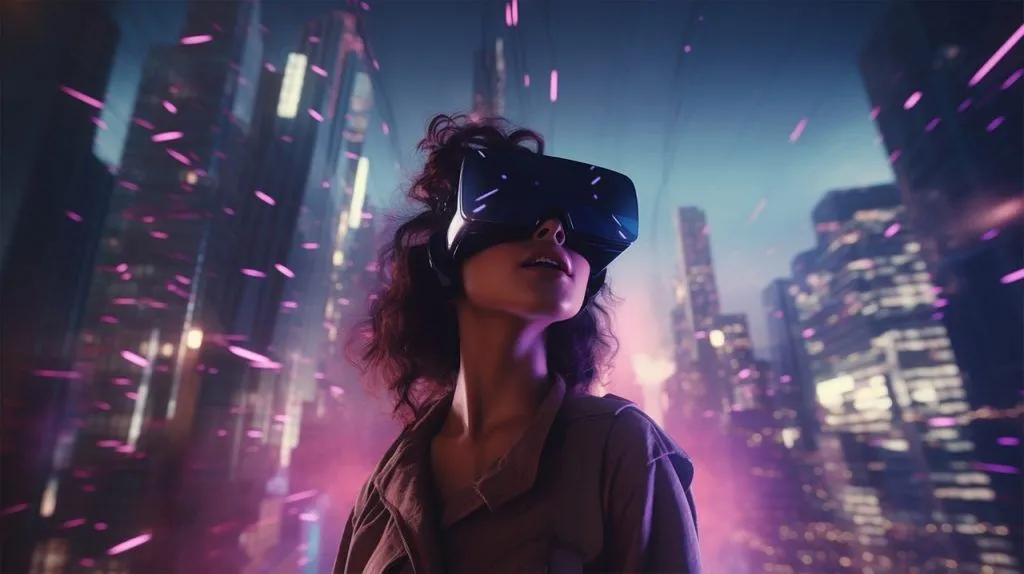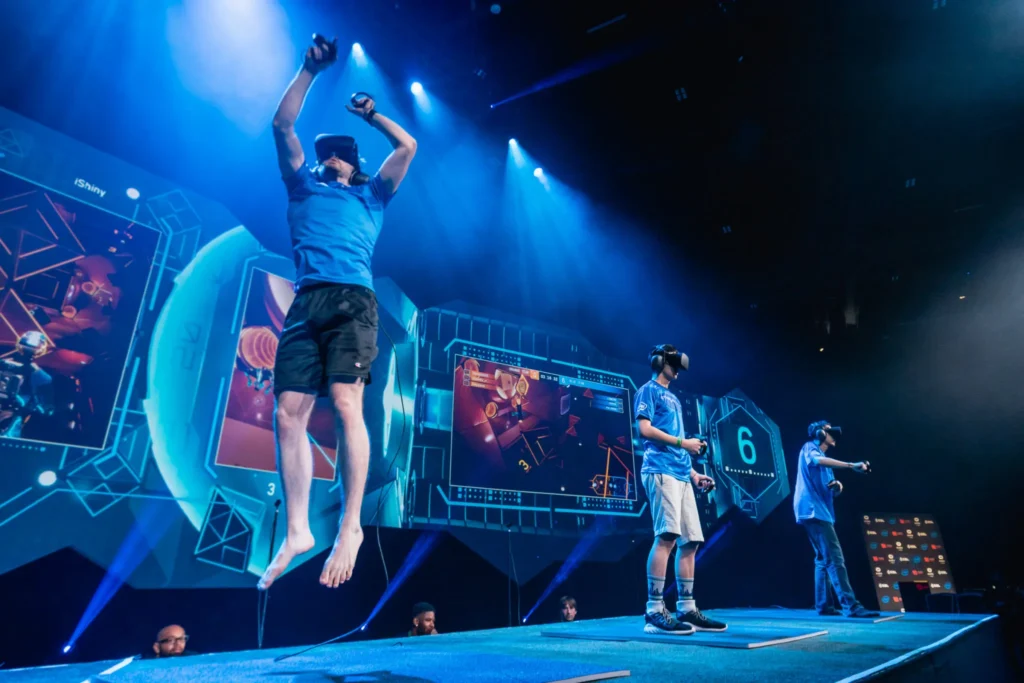Virtual reality (VR) esports is transforming competitive gaming, providing greater immersion and new ways of participating in digital landscapes. With next-generation VR headsets, motion tracking, and haptic feedback systems, esports is moving from screens to completely interactive spaces where players are part of the action in a physical sense. Such better immersion not only transforms the esports market but also creates new possibilities for betting markets, crypto betting, and casino-style esports gambling.
The Rise of Virtual Reality Esports

VR esports is turning out to be a driving force within the gaming industry, with pro teams, events, and specialist leagues gaining traction. Unlike mainstream esports, which has players competing on keyboards, controllers, and monitors, competition in VR requires the use of body movement, reflexes, and spatial awareness, which creates a more physically taxing and engaging experience.
Major Drivers of Growth of VR Esports
Technological Advancements – Higher-end VR headsets like the Meta Quest 3, HTC Vive Pro, and Valve Index have improved resolution, motion tracking, and latency, which raises the competitiveness of VR esports.
Increased Investment and Sponsorships – Meta, Sony, and HTC are investing big time in VR gaming, while esports teams are setting up VR teams to play in new leagues.
Expanding Player Population and Audience Participation – With advancing VR technology becoming increasingly accessible, more players take part in VR esports events with live spectators watching on streaming platforms like Twitch and YouTube Gaming.
Blockchain and Cryptocurrency Betting Support – Most of today’s VR esports tournaments include crypto betting platforms integrated within, where participants and audience members can bet in Bitcoin, Ethereum, and other cryptocurrency tokens.
Major VR Esports Games and Competitions
Some of the more competitive VR games lead the esports industry, with intense play that involves a mix of skill, strategy, and physical endurance.
Best VR Esports Games
Echo VR – A zero-gravity sport game that is a hybrid of Ultimate Frisbee and football with precise movement and coordination required between teams.
Onward – A realistic military first-person shooter where coordination, communication, and strategy are relied upon by players.
Population: ONE – A vertically oriented, high mobility, strategically positioned VR battle royale game.
Blaston – A 1v1 dueling shooter where the players are dodging bullets in real-time with an emphasis on agility and response speed.
Major VR Esports Leagues
VR Master League (VRML) – One of the oldest VR esports leagues with tournaments in Onward, Echo VR, and Pavlov VR.
VAIL VR Tournament – A competitive landscape focused on VAIL VR, an FPS developed entirely for esports-level competition.
IVRL (International Virtual Reality League) – Organizes high-level VR tournaments, pushing the competitive landscape forward.
Betting on Virtual Reality Esports: The Future of Wagering
As VR esports gain popularity, the betting markets are opening to give bets on VR matches, tournaments, and individual performance. Esports bookmakers are transforming to feature live betting facilities, proposition bets, and even NFT betting linked to VR events.
Crypto Betting and VR Esports
- Instant Transactions and Decentralization – Crypto betting supports instant deposits and withdrawals with instantaneous transactions free from banking delays.
- NFT-Based Betting Rewards – Some VR esports betting sites reward bets in NFTs, which award exclusive in-game assets and digital memorabilia.
- Greater Security and Privacy – Betting sites based on the blockchain offer secure transactions and unbiased odds, which reduce risks from fraud.
VR Esports Betting Markets
- Winner Bets of a Match – Betting on an individual or team winning a VR esports match or tournament.
- Prop Bets – Betting on specific in-game events, such as the first kill, most headshots, or survival time.
- Live Betting (In-Play Wagering) – Live match betting, adjusting bets based on live performance.
- Fantasy VR Esports – Similar to regular fantasy sports, where users select VR esports players for a team and give points based on in-game performance.
The Future of VR Esports and Betting
The intersection of VR technology, esports competition, and online gambling is shaping the future of immersive gaming. New trends will further influence the future generation of VR esports and online betting innovation as the technology progresses.
New Trends in VR Sportsbooks and Online Betting
Virtual Reality Sportsbooks – Fully interactive VR casino-form sportsbooks wherein users can bet from a virtual sportsbook betting lounge.
Haptic Feedback Betting – Future haptic gloves and suits will allow punters to experience the tension and touch of esports competitions.
AI-Powered Betting Tips – AI-driven machine learning will give punters real-time esports player performance predictions based on VR esports data.
Metaverse Integration – Esports betting will shift into metaverse platforms, where punters can bet and spectate from virtual arenas.
The Arrival of Next-Gen Esports and Betting

Virtual reality esports is revolutionizing competitive gaming with a level of immersion in the world of esports not previously imagined. Crypto, NFT betting, and analytics via AI are driving the market, with VR esports betting to be a mass market for online gambling. Still, as is true with any form of betting, responsible play practices and knowledge within the marketplace ensure long-term success. With the development of technology, the next generation of esports gambling will integrate metaverse, blockchain, and virtual reality to offer an immersive interactive gaming experience.

Leave a Reply